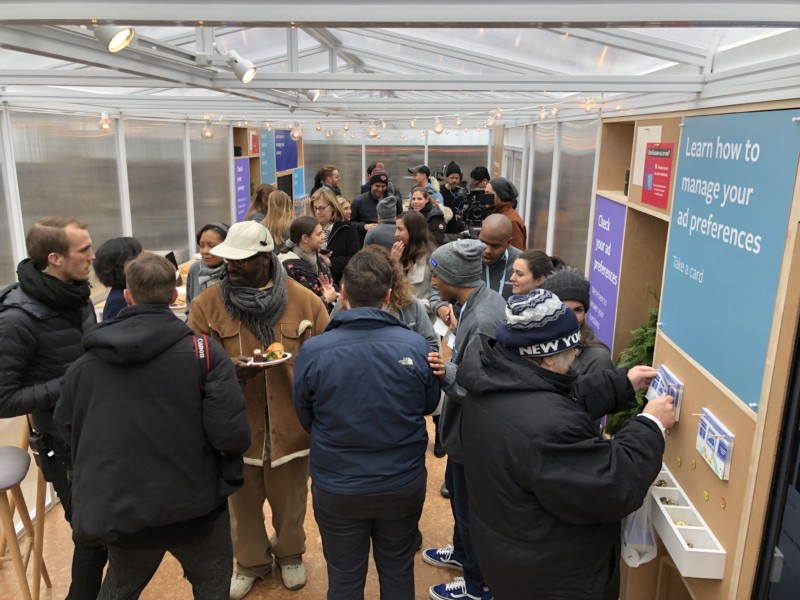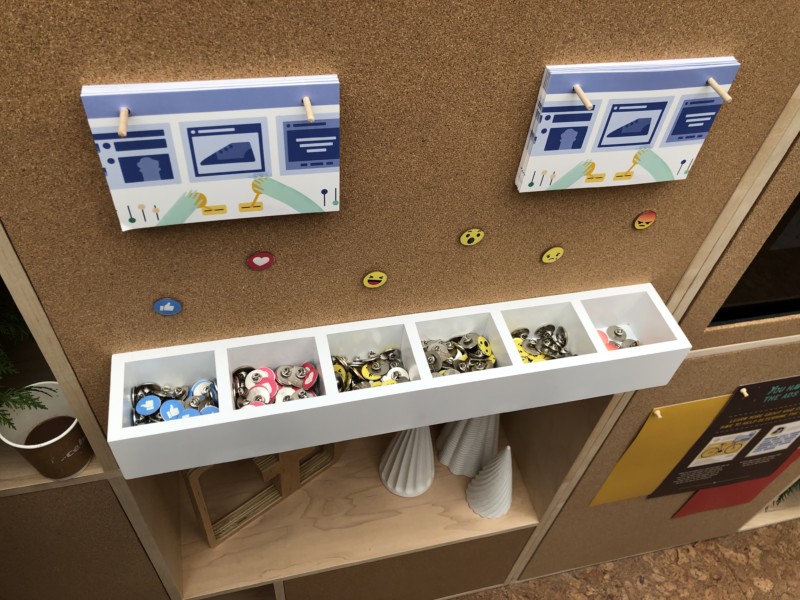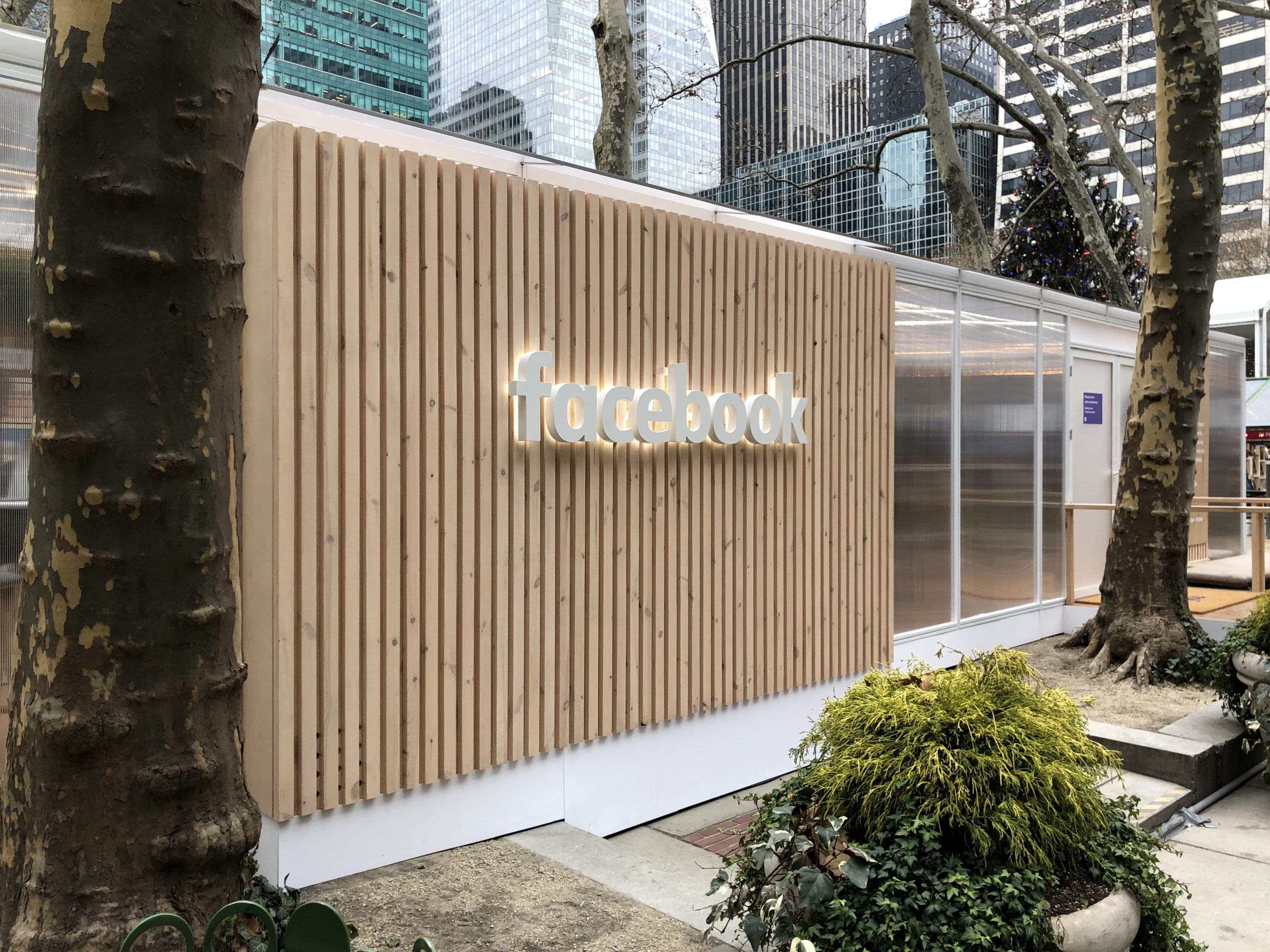Sign up for The Media Today, CJR’s daily newsletter.
It was the perfect day for some corporate warmth: On Thursday, Facebook hosted a privacy-themed pop-up in a cozy trailer with free hot chocolate and cupcakes, along the edge of Manhattan’s Bryant Park.
The event, a single-day engagement among the park’s Christmas market stands, had the nominal goal of increasing information literacy among users who happened to stop in and consult with a smiling Facebook employee. “We’re really here because we want to put a face on Facebook,” Simone Levien, a friendly member of the company’s comms team, said. (A face that wasn’t Mark Zuckerberg’s or Sheryl Sandberg’s.) “You’ve seen what’s happened in the news this last year.”

Marshmallow Fs
But the focus among Bryant Park shoppers was on the respite from the chill and the sleet, rather than corporate ethics—on F-shaped marshmallows, chocolate, and free metal pins shaped like Facebook’s reaction emojis (disclosure: this reporter took an Angry Face pin). The interior of the trailer, on a corner not far from booths selling pricey saucisson sec, novelty lamb dishes, and trendy T-shirts, had the look and feel of an Apple store, but with cake instead of computers.
For Facebook, the focus was on seeming nice. As pedestrians wandered in, a Facebook PR staffer would offer them hot drinks and “privacy checkups,” the infelicitous name of Facebook’s how-to guide for a few of its settings, none of which govern Facebook’s data collection. As visitors walked out, a news camera crew stood waiting to ask them what they thought about the project (“Are you a reporter?” asked someone from the Associated Press as soon as I walked through the door).

The Facebook PR team hobnobs with shoppers and journalists
During the pop-up, another thumbs-down for Facebook made news, this time for its fact-checking division, which The Guardian reported was collapsing over internal disillusionment with the company tied to its dissemination of George Soros conspiracy theories.
Levien said the company goal for the day was “having conversations” and “hearing from people who might not be happy with Facebook,” and then, presumably, giving them chocolate. This was the fourth stop on Facebook’s public-facing goodwill tour, she said, and the first in the US: previous pop-ups had graced Dublin, London, and Cologne.
Nobody at the event seemed angry—certainly not about the elections or disinformation. “I’m not someone who’s a privacy alarmist,” Larry Lennox-Choate, who works across the street, said. “I like that I’m getting targeted ads. My husband and I don’t need ads for tampons. I don’t know that I have anything to offer hackers. My life is pretty boring.”
READ: Guide to advertising technology

Free Facebook emoji enamel pins. The Angrys are almost gone.
Does he worry about the scams that have proliferated through the company’s direct-message tool? “I don’t use Facebook Messages,” he said. He didn’t like when the company made it a discrete app. And was he inclined to look more kindly on the company after the event? “I liked the F marshmallows,” Lennox-Choate laughed. “I much prefer a pop-up to a pop-up window.”
Has America ever needed a media defender more than now? Help us by joining CJR today.



